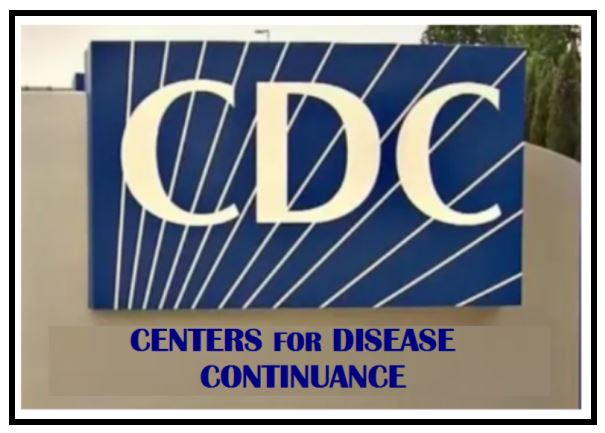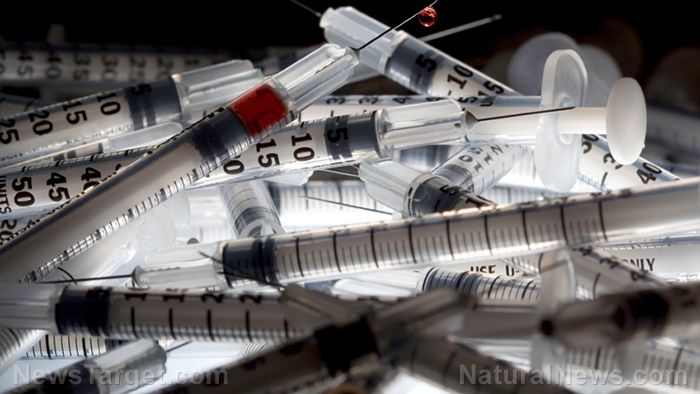Science behind the CDC’s childhood vaccines lacks double blind, placebo-controlled studies and conceals adverse events
08/19/2024 / By Lance D Johnson

A double-blind placebo-controlled trial is a rigorous study design where neither the participants nor the researchers know who is receiving the treatment and who is receiving a placebo. This method minimizes biases and provides the most reliable evidence of a vaccine’s safety and efficacy.
However, a recent evaluation of vaccine product inserts by the Informed Consent Action Network (ICAN) indicates that childhood vaccines, as listed on the CDC’s schedule, were not subjected to double-blind placebo-controlled trials. The study designs for almost every vaccine on the childhood schedule was based on fraudulent placebos, allowing regulators to overlook serious levels of adverse events for each new vaccine.
To make matters worse, many vaccine trials are based on research periods that are shorter than Operation Warp Speed — the accelerated time-frame used to fast-track emergency use authorization for the most dangerous vaccine products in U.S. history. Because of these hasty, short term, fraudulently-designed vaccine trials, the real world, long term effectiveness of all childhood vaccines is unknown. There is no evidence that a single life has been saved by this system of rigorous vaccination, but there is a plethora of evidence of children injured, lives lost.
CDC’s childhood vaccine schedule is based on fraudulent study designs, fake placebos
Hepatitis B (HepB) Vaccines: Both Recombivax HB and Engerix-B, commonly injected into newborn infants, did not undergo double-blind placebo-controlled trials. Instead, safety was evaluated through shorter-term studies and observational data. The Recombivax HB and Engerix-B trials had controls with no placebo, and safety reviews were limited to a few days.
DTaP Vaccines: Infanrix and Daptacel, which allegedly protect against diphtheria, tetanus, and pertussis, also lacked double-blind placebo controls. Safety evaluations were performed over periods ranging from 30 days to six months, with no long-term placebo studies.
PCV (Pneumococcal Conjugate Vaccines): Prevnar 13 and Vaxneuvance trials used investigational vaccines as controls instead of a true placebo. Reports indicated serious adverse events but were deemed acceptable due to no notable patterns. Vaxneuvance was actually tested against Prevnar 13 in clinical trials, not against a placebo. The results showed similar rates of serious adverse events in both groups. Regulators approved both vaccines because the so-called placebo was statistically just as harmful as the vaccine – a fraudulent study design.
Rotavirus Vaccines: The Rotarix vaccine, which attempts to prevent one form of infant diarrhea, was tested against fractions of the vaccine itself. This trial used a placebo consisting of the same vaccine components without the rotavirus antigen, rather than a true placebo. Adverse events were reported but considered within acceptable safety limits. Similarly, RotaTeq trials used a placebo that contained multiple vaccine ingredients rather than a pure placebo. This approach was used to evaluate the safety and efficacy of the vaccine in a controlled setting, a period that varied from 31 days to just a year.
Influenza Vaccines: The initial trials for flu vaccines did not always include a placebo control. Today, seasonal flu vaccines are updated annually, and new formulations are NOT subjected to new placebo-controlled trials each year. The antigen selected for seasonal flu vaccines is based on guesswork and may not match the upcoming circulating strain of influenza, especially by the time the strain mutates. After 60 years of pushing flu vaccines, there is no evidence of lower mortality rates.
MMR vaccines: The M-M-R-II trials did not use a double-blind placebo-controlled approach. Instead, the trials involved historical controls or other vaccines. Adverse event data were reported, but the studies did not include a pure placebo group. The measles and mumps antigens do not convey long term immunity in populations, a fraud known by manufacturer Merck for over a decade.
Varicella (Chickenpox) Vaccine: The Varivax vaccine was tested using controls that included neomycin or other substances rather than a double-blind placebo. The trials actually recorded higher rates of infections in the vaccinated group compared to controls. This study suggests that other random substances may provide more robust immunity than chickenpox vaccines.
Hepatitis A (HepA) Vaccines: The clinical trials for Havrix did not use a double-blind placebo-controlled design. Instead, developers compared the vaccine to other Hepatitis B vaccines or to historical data. Similarly, Vaqta trials included control groups receiving other vaccine ingredients or substances rather than a pure placebo.
HPV Vaccines: Gardasil 9 trials involved various control methods, including aluminum adjuvants or other vaccine ingredients. This means that trial participants were unknowingly injured by so-called placebos that were really just aluminum adjuvants. The equivalent number of adverse events in both research groups made the HPV vaccine appear statistically safe.
Dengue Vaccine: Dengvaxia trials were conducted with a true placebo group. However, the long-term follow-up revealed significant safety concerns, particularly in children not previously infected with dengue.
Meningococcal Vaccines: Menactra trials used other meningococcal vaccines or historical controls rather than a double-blind placebo. The safety profile was based on comparisons with these fraudulent controls.
The lack of double-blind, placebo-controlled trials for common childhood vaccines is a wake-up call for all parents and soon-to-be parents. If the true rate of adverse events is being significantly concealed using fake placebos, and the long-term efficacy is unknown, then the childhood vaccine schedule is fraudulent, needless, and poses unnecessary risks to kids.
Sources include:
Submit a correction >>
Tagged Under:
adjuvant, adverse event statistics, CDC, Censored Science, childhood vaccines, Clinical trials, disease continuance, double-blind studies, fake control group, fraudulent placebo, informed consent, long term studies, medical research, placebo-controlled studies, research, science deception, science fraud, scientific integrity, Scientific Method, vaccine failure, vaccine wars, vaccines
This article may contain statements that reflect the opinion of the author
RECENT NEWS & ARTICLES
COPYRIGHT © 2017 IMMUNIZATION NEWS


















